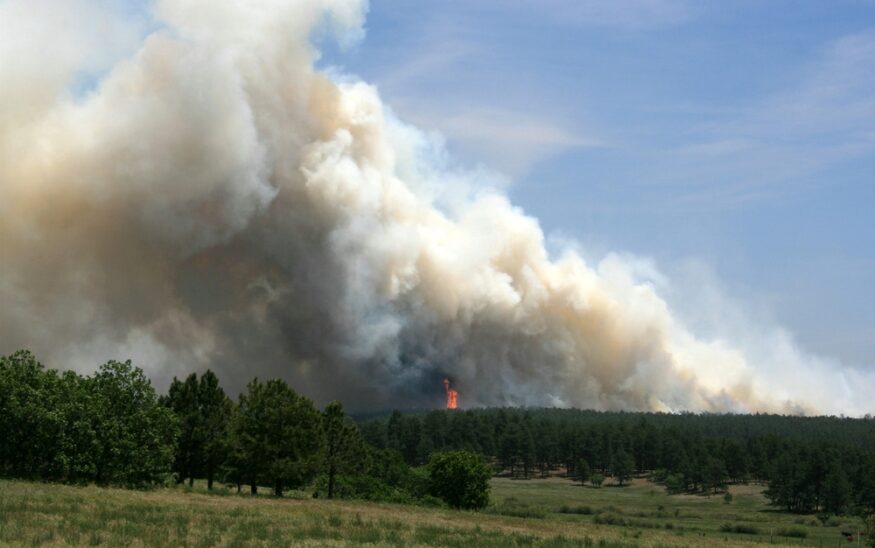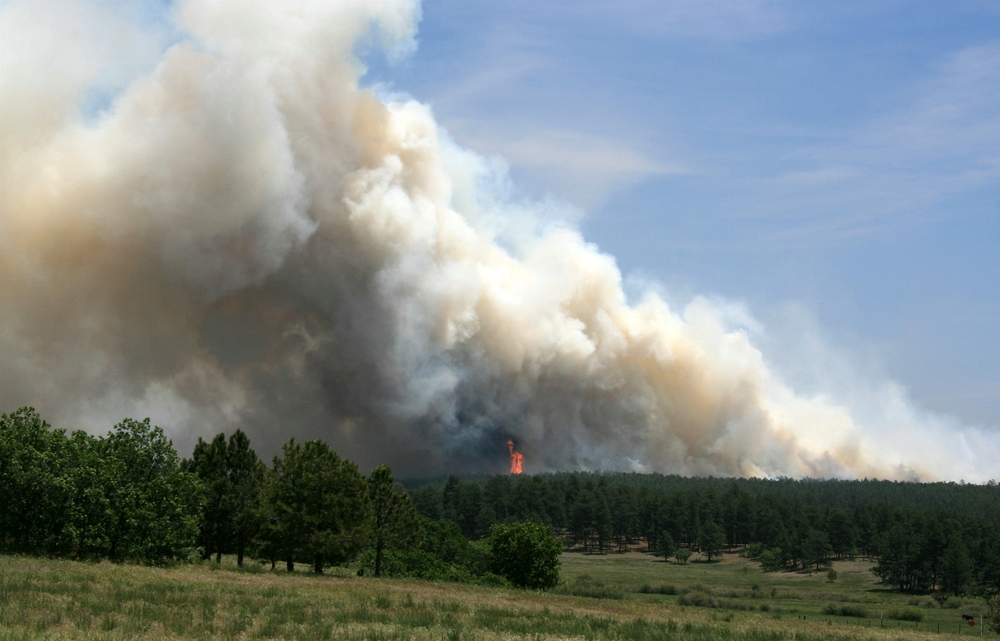Saving Our Forests Before They All Go Up in Smoke
Op-Ed: There are successful models for improving forest health in collaboration with responsible industry partners
Lesli Allison //September 22, 2017//


Saving Our Forests Before They All Go Up in Smoke
Op-Ed: There are successful models for improving forest health in collaboration with responsible industry partners
Lesli Allison //September 22, 2017//

Tucked between the midwestern plains and the western prairies lie some of our nation’s most iconic forests. These lands comprise an incredibly diverse ecosystem, support local economies and provide critical water supplies, recreational opportunities and sanctuary for wildlife populations.
However, both our public and privately owned forests are facing increased threats, ranging from insect infestation, development pressure, extreme forest fires, unstable timber markets and perhaps most threatening — dwindling forest service budgets and diminishing private land management assistance. As of this moment, hundreds of fires are burning across the West in yet another devastating fire season. It is time for Congress to act. And because fire doesn’t pay attention to ownership boundaries, the solutions must extend across the complex mix of public and private land in the West.
According to the American Forest Foundation, nationwide one-in-four rural Americans is a family forest owner. In the West, more than 30 percent of forested areas posing a high wildfire risk are privately owned, mostly attributable to insufficient management resources and shrinking market demands for forest products.
Congress has an opportunity to partner with private landowners to improve forest health with the upcoming Farm Bill. Technical support and cost-share investment through the Farm Bill enables landowners to conserve and restore forests, improve watershed function and reduce the risk of fire, all of which cut costs and provide tremendous public benefits.
The Farm Bill also supports investments in innovative forest technology and markets, research and development. Congress must continue to fund U.S. Department of Agriculture research at the mandatory minimum levels.
Congress also has the responsibility to ensure our federal land management agencies have the staff and funding necessary to manage our public lands appropriately. Currently, however, emergency fire suppression is funded at the expense of proactive management. As wildfires have increased in regularity and severity, U.S. Forest Service firefighting costs have grown significantly, now consuming more than 50 percent of the annual budget, an increase of nearly 35 percent over the last two decades.
To accommodate fire suppression demands, the agency is often required to borrow funds from other non-fire related accounts, leaving fewer funds for programs and management practices intended to reduce fire risk, restore our forests and provide incentives for market-based solutions. We need to get ahead of this curve by funding fire suppression costs separately from the regular U.S. Forest Service budget.
Finally, at an average management cost of $300 to $500 per acre, restoration and management of both public and private forests can be cost-prohibitive. We can make management more affordable by increasing administrative efficiency and creating new markets for sustainably produced forest products. This does not mean we should remove prudent environmental safeguards or abandon sound conservation principles.
We have learned a great deal during the past century about forest management and there are successful models for improving forest health in collaboration with responsible industry partners. Congress needs to build on these models and make smart investments in forest health that ultimately reduce costs to taxpayers in the long run.
As water supplies, homes, livelihoods and treasured landscapes go up in smoke, we can’t afford to wait any longer. It’s time to make the responsible management and conservation of our lands and natural resources a national priority.
























